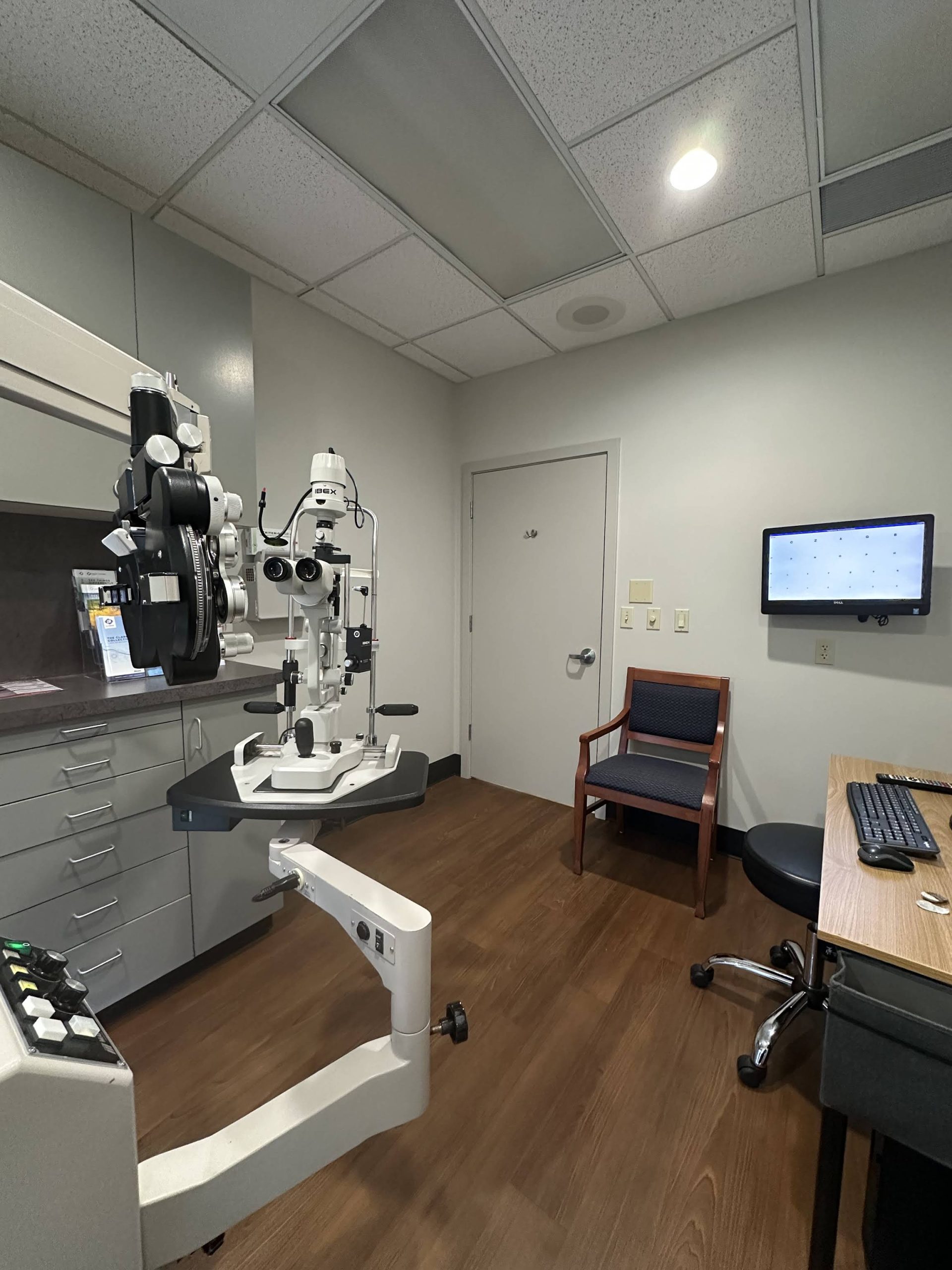 Glaucoma is a serious eye condition that can lead to irreversible vision loss if not diagnosed and treated promptly. For residents of Redmond, WA, finding a qualified glaucoma eye doctor is essential for maintaining eye health and preserving vision. This article explores the importance of glaucoma care, what to expect during an eye examination, and how to choose the right specialist in Redmond.
Glaucoma is a serious eye condition that can lead to irreversible vision loss if not diagnosed and treated promptly. For residents of Redmond, WA, finding a qualified glaucoma eye doctor is essential for maintaining eye health and preserving vision. This article explores the importance of glaucoma care, what to expect during an eye examination, and how to choose the right specialist in Redmond.
Understanding Glaucoma
Glaucoma refers to a group of eye diseases that damage the optic nerve, often associated with increased intraocular pressure (IOP). It is one of the leading causes of blindness worldwide, making early detection and management crucial. The optic nerve is essential for transmitting visual information from the eye to the brain, and any damage to it can lead to irreversible vision loss. This makes understanding glaucoma not just a matter of eye health, but also a significant public health concern.
Types of Glaucoma
There are several types of glaucoma, with the most common being primary open-angle glaucoma and angle-closure glaucoma. Primary open-angle glaucoma progresses slowly and usually has no early symptoms, while angle-closure glaucoma can present suddenly with severe symptoms, including headache, nausea, and blurred vision. The silent progression of primary open-angle glaucoma often leads individuals to overlook their symptoms until significant damage has occurred, underscoring the importance of regular eye check-ups.
Other forms include normal-tension glaucoma, where optic nerve damage occurs despite normal eye pressure, and secondary glaucoma, which can result from other medical conditions or injuries. Understanding these variations is vital for effective treatment. For instance, normal-tension glaucoma may require different management strategies, focusing on neuroprotection and lifestyle modifications, while secondary glaucoma treatment often targets the underlying cause. Awareness of these distinctions can help healthcare providers tailor their approaches to individual patient needs.
Risk Factors
Several factors can increase the risk of developing glaucoma. These include age, family history, ethnicity, and certain medical conditions such as diabetes and hypertension. Individuals over 60, particularly those with a family history of glaucoma, should have regular eye examinations to monitor their eye health. Additionally, studies have shown that certain ethnic groups, such as African Americans and Hispanics, are at a higher risk, which may necessitate more frequent screenings for these populations.
Awareness of these risk factors can empower individuals to seek timely evaluations and interventions, potentially preventing significant vision loss. Lifestyle choices also play a role; maintaining a healthy diet rich in antioxidants, engaging in regular physical activity, and avoiding smoking can contribute to overall eye health. Furthermore, understanding the importance of medication adherence for those already diagnosed with glaucoma can significantly impact disease progression, as many treatments require consistent use to be effective. This holistic approach to eye care can help mitigate the risks associated with glaucoma and promote long-term visual health.
The Importance of Regular Eye Exams
Regular eye exams are crucial for detecting glaucoma early. Many people are unaware that they have the condition until significant damage has occurred. A comprehensive eye examination conducted by a glaucoma specialist can help identify any signs of the disease.
What to Expect During an Eye Examination
During a comprehensive eye exam, the eye doctor will perform several tests to assess eye health. These tests typically include measuring intraocular pressure, examining the optic nerve, and testing peripheral vision. The doctor may also use imaging technology to get a detailed view of the optic nerve and retina.
Patients may be asked about their medical history and any family history of eye diseases. This information can help the doctor determine the best course of action for monitoring or treating glaucoma.
Diagnostic Tools
Modern diagnostic tools play a significant role in the early detection of glaucoma. Optical coherence tomography (OCT) is one such tool that provides cross-sectional images of the retina, allowing doctors to assess the thickness of the nerve fiber layer. This can help identify early signs of glaucoma before noticeable symptoms arise.
Other tools, such as visual field tests, help evaluate a patient’s peripheral vision, which can be affected by glaucoma. These tests are essential for establishing a baseline and tracking any changes over time.
Choosing the Right Glaucoma Eye Doctor in Redmond, WA
Finding the right glaucoma eye doctor is a critical step in managing eye health. Redmond offers several qualified eye care professionals, but it is essential to choose one who meets specific criteria.
Qualifications and Experience
When selecting a glaucoma specialist, consider their qualifications and experience. Look for an ophthalmologist who is board-certified and has specialized training in glaucoma management. Experience in treating various forms of glaucoma and familiarity with the latest treatment options can significantly impact patient outcomes.
Additionally, reading patient reviews and seeking recommendations from friends or family can provide insights into the doctor’s approach and effectiveness.
Accessibility and Communication
Accessibility is another important factor. A glaucoma specialist should be conveniently located and offer flexible appointment times. Effective communication is also crucial; patients should feel comfortable discussing their concerns and asking questions regarding their diagnosis and treatment options.
Establishing a good rapport with the doctor can make a significant difference in the overall treatment experience. A doctor who takes the time to explain procedures and answer questions can help alleviate anxiety and build trust.
Treatment Options for Glaucoma
Once diagnosed, there are various treatment options available for managing glaucoma. The choice of treatment depends on the type and severity of the condition, as well as the patient’s overall health.
Medications
Medications are often the first line of treatment for glaucoma. These may include eye drops that help lower intraocular pressure by improving fluid drainage or reducing the production of fluid in the eye. It is essential for patients to adhere to their prescribed medication regimen to achieve the best outcomes.
Regular follow-up appointments are necessary to monitor the effectiveness of the treatment and make any necessary adjustments.
Surgical Options
For some patients, surgical intervention may be necessary. There are several surgical options available, including trabeculectomy, which creates a new drainage pathway for fluid, and minimally invasive glaucoma surgeries (MIGS), which aim to lower IOP with fewer risks and faster recovery times.
Patients should discuss the potential benefits and risks of surgical options with their glaucoma specialist to make informed decisions about their treatment plan.
Living with Glaucoma
Living with glaucoma requires ongoing management and lifestyle adjustments. Patients should stay informed about their condition and adhere to their treatment plans. Regular check-ups are vital for monitoring eye health and adjusting treatment as needed.
Support and Resources
Many organizations provide resources and support for individuals living with glaucoma. These include educational materials, support groups, and access to the latest research. Engaging with these resources can help patients manage their condition more effectively and connect with others facing similar challenges.
Additionally, staying informed about advancements in glaucoma research and treatment options can empower patients to take an active role in their eye health.
Conclusion
Finding a qualified glaucoma eye doctor in Redmond, WA, is essential for anyone at risk of or diagnosed with glaucoma. Regular eye exams, understanding the condition, and choosing the right specialist can significantly impact the management of this disease. With the right care and support, individuals can maintain their vision and lead fulfilling lives despite the challenges posed by glaucoma.
Residents are encouraged to prioritize their eye health and seek professional guidance to navigate the complexities of glaucoma effectively.
If you’re seeking a trusted glaucoma eye doctor in Redmond, WA, look no further than Overlake EyeCare. Our commitment to your vision is unwavering, and we offer the expertise of Dr. Mary Coday, who specializes in cataract surgery and advanced intraocular lens technology. At Overlake EyeCare, we emphasize the importance of routine eye examinations to preserve your vision and monitor the health of your eyes, especially if you wear glasses or contacts. We utilize cutting-edge Lenstar technology for precise measurements and offer a range of intraocular lenses, including Eyhance toric, Vivity, Synergy, Clareon, and Panoptix multifocal lenses, to meet your specific visual needs. Your eye health is our priority, and we tailor our lens implant recommendations to your unique ocular condition. Don’t wait until it’s too late; Contact Us Today to schedule your comprehensive eye exam and ensure your eyes are in top condition.

